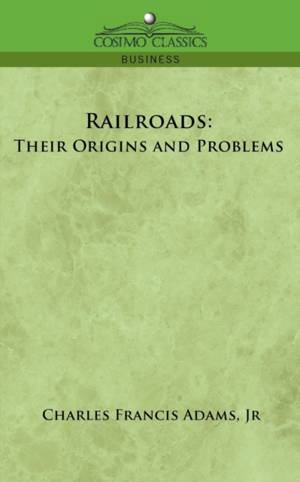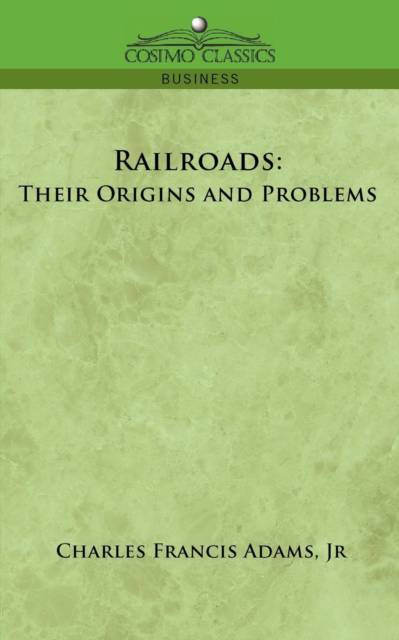
- Afhalen na 1 uur in een winkel met voorraad
- Gratis thuislevering in België vanaf € 30
- Ruim aanbod met 7 miljoen producten
- Afhalen na 1 uur in een winkel met voorraad
- Gratis thuislevering in België vanaf € 30
- Ruim aanbod met 7 miljoen producten
Zoeken
Omschrijving
Competition made the price of flour and cloth and shoes equal and reasonable; why should it make fares and freights unequal and unreasonable? Few indeed were they who could be made to see that the true cause of complaint was with an economical theory misapplied... The system was, indeed, fairly honeycombed with jobbery and corruption. -from "The Railroad Problem" In the middle to late 19th century, a morass of civic and social concerns ensnared private corporations-the railroads-that provided what was essentially a public service. The "railroad problem" was only beginning to dramatically impact the United States when, in 1878, Charles Francis Adams, Jr., an expert on railroad management and the future president of the Union Pacific Railroad wrote Railroads: Their Origin and Problems. Through an exploration of the state of the industry in the U.S., Great Britain, and Europe, Adams examines issues of free trade, corporate power, government support of a public utility, and even social engineering: how do technology and the government's power to tax and subsidize shape society? The great railroads of the 19th century may have passed into history, but the issues they raised continue to concern us today. American businessman CHARLES FRANCIS ADAMS, JR. (1835-1915), the grandson of John Quincy Adams, was educated at Harvard and served in the Union Army during the Civil War, achieving the rank of brigadier general.
Specificaties
Betrokkenen
- Auteur(s):
- Uitgeverij:
Inhoud
- Aantal bladzijden:
- 236
- Taal:
- Engels
- Reeks:
Eigenschappen
- Productcode (EAN):
- 9781596054639
- Verschijningsdatum:
- 1/11/2005
- Uitvoering:
- Paperback
- Formaat:
- Trade paperback (VS)
- Afmetingen:
- 127 mm x 203 mm
- Gewicht:
- 258 g

Alleen bij Standaard Boekhandel
+ 54 punten op je klantenkaart van Standaard Boekhandel
Beoordelingen
We publiceren alleen reviews die voldoen aan de voorwaarden voor reviews. Bekijk onze voorwaarden voor reviews.







